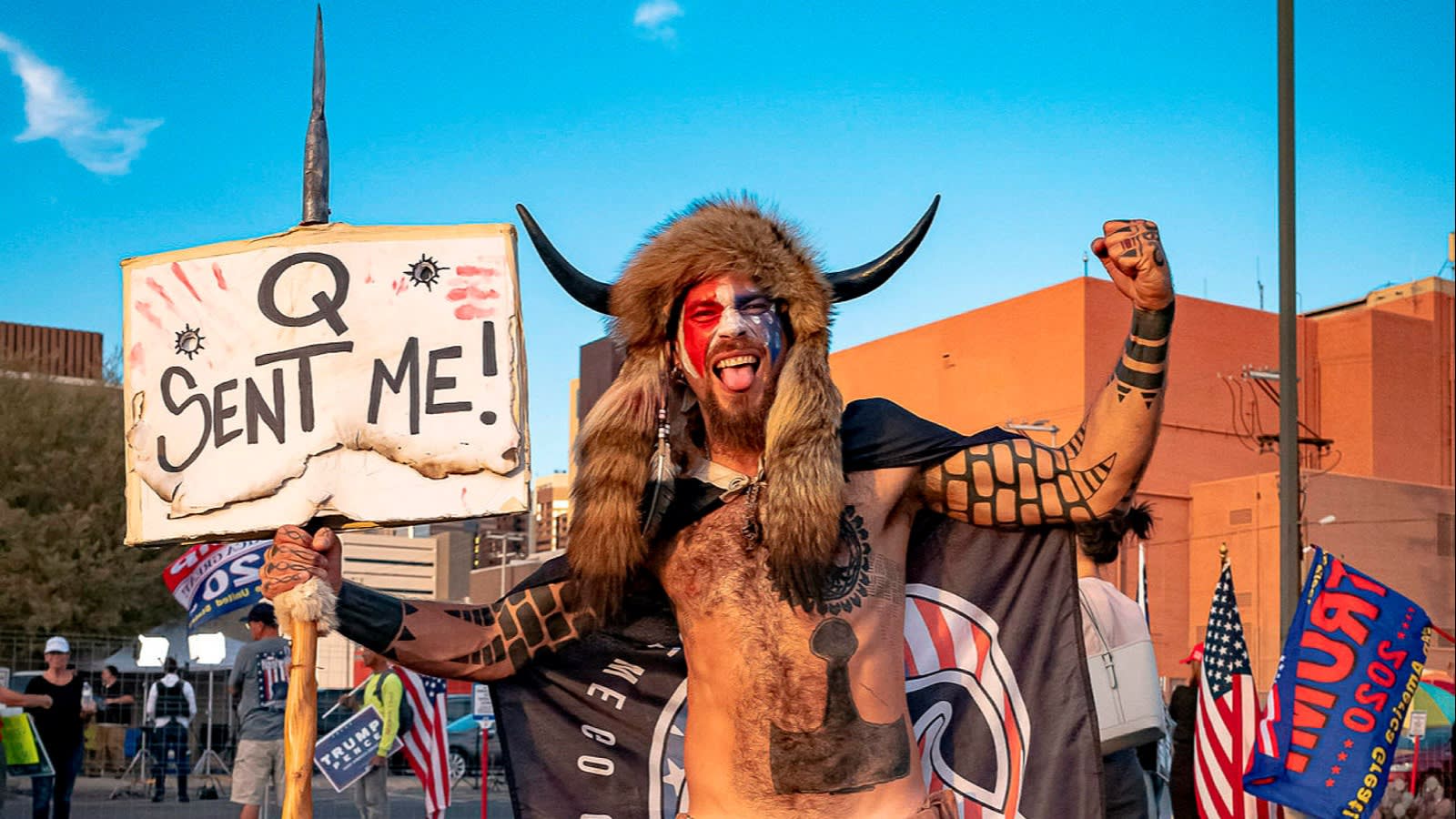Finding Q — a gripping podcast investigation into QAnon

Arts updates
Sign up to myFT Daily Digest to be the first to know about Arts news.
In Finding Q, British journalist Nicky Woolf sits in a car outside a California apartment block hoping to glimpse a man he suspects of having orchestrated an online uprising, one that has spilled over into real life. Woolf is nervous — rightly, as it turns out. On approaching his quarry, he is told: “If you do this again, you will meet my friends.”
Finding Q is a gripping new podcast from Audible about the extremist conspiracy theories disseminated online in the US. QAnon disciples believe in a “deep state” cabal of media moguls, celebrities and high-profile Democrats who allegedly engage in devil worship, child trafficking and cannibalism. The source of this misinformation is said to be a single person who posts cryptic clues and prophecies, known as “Q drops”, on the internet forum 8kun (formerly known as 8chan).
This is the kind of story that is ready-made for audio, tapping into the medium’s biggest obsessions: cults, conspiracy theories and the dark underbelly of the internet. While most podcasts about cults tell historical tales, Finding Q centres on an ongoing political and social movement that has inched its way dangerously into the mainstream. Of those arrested in connection with the riots on Washington’s Capitol Hill in January, dozens wore clothing with QAnon references.
There’s something of the gonzo about Woolf, who bowls blithely into perilous situations where others might keep their distance. Along with staking out the alleged architect of QAnon, he visits a diner to hang out with some of Georgia’s armed militia who identify closely with the movement (they are actually very friendly). While quarantining in Mexico, he dispatches a fellow reporter to a QAnon conference in Texas. There attendees are asked to ensure that the person standing next to them isn’t from the media.
Even with his edgy antics, Woolf treats his subject with the utmost seriousness. The movement’s beliefs may seem laughable, but its impact is not. The most affecting episode features the PR executive and “Q casualty” Melissa Rein Lively who, having found kinship on QAnon sites, had a meltdown in a retail store where she tore down racks of masks. Lively filmed the episode, which culminated in her arrest and hospitalisation, and streamed it on Instagram where it went viral. It’s with great sadness that she reveals that QAnon “destroyed me. [It] completely collapsed my world view and landed me in a psychiatric evaluation facility . . . It was rock bottom.”
NPR’s Throughline also has a terrific episode on conspiracy theories and how they have played a crucial part in shaping politics and culture for centuries. Among the case studies is Sam Adams, a cousin of the second US president John Adams, who spread bogus stories to promote the cause of revolution, including one about a British government plan to enslave American colonists. All of these make Adams an early pioneer of fake news.
*** This article has been archived for your research. The original version from Financial Times can be found here ***

